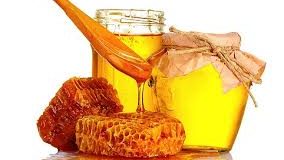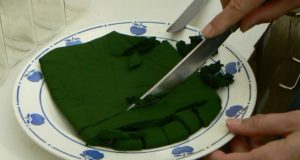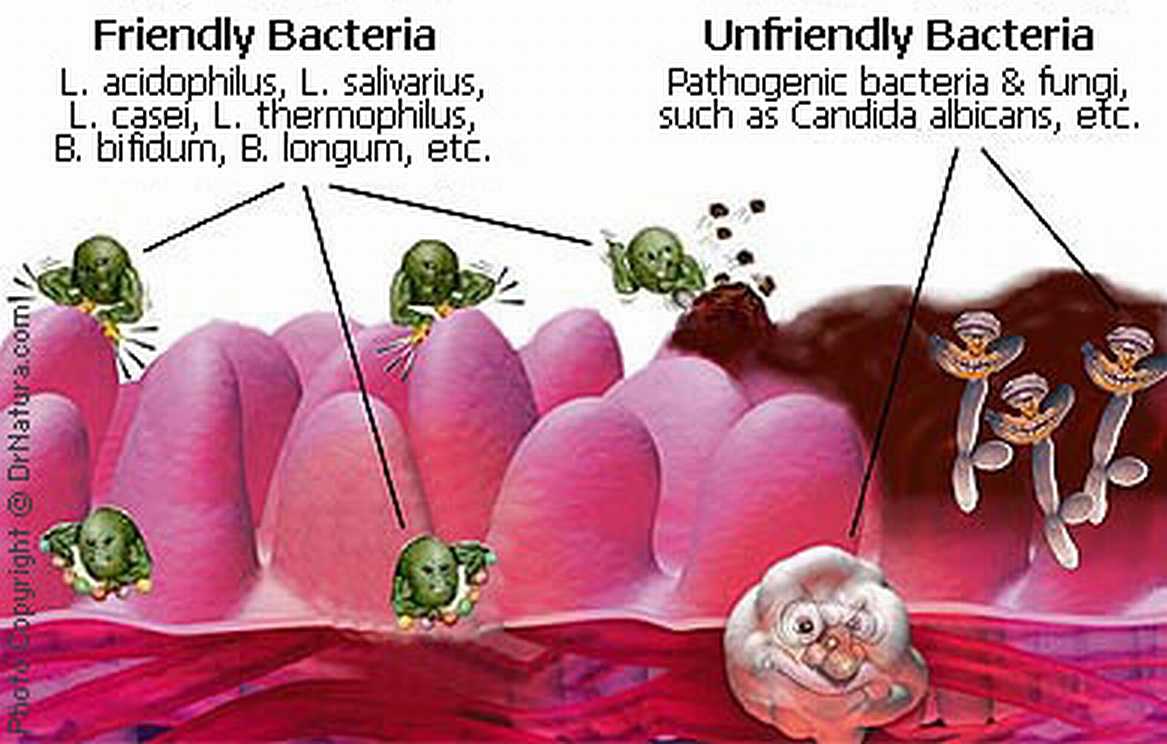
Not because I hate soy but because I hate the way the Soy industry has lied to us and poisoned us for profit. You must read Kaayla T. Daniels’s book The Whole Soy Story to truly understand the history and damaging effects of soy. The book contains many compelling testimonials, about the dangers of soy, from real people. The serious health problems caused by heavy soy consumption are unbelievable. Soybeans are a cheap, crappy, hard to digest, food source with many harmful side effects. Once again you have been lied to and I will not tone down the truth so corporations can market waste products as health food. I know what you’re thinking. If soy is so bad then how come most people think it is good? This is why:
First of all, the origins of soybean use, 3000 years ago, in ancient China, Japan and Indonesia came out of poverty and famine. The soybean did not serve as a food until the discovery of fermentation techniques.1 Soybeans were used for crop rotation to add nitrogen to the soil.
They were not eaten.
These ancient peoples would have rather eaten fish and meat they just did not have enough. Soy Protein or Tofu evolved as a poor man’s meat substitute. It was discovered that fermenting the soybeans gave them a better flavor, made them more edible and medicines could be created from the soybeans-like Nattokinase. It is the fermenting of soy that makes it healthy in small quantities. This fermentation of foods has been used since ancient times to preserve food and create medicines from food, and is known as “Alchemy”.2
The Chinese did not eat unfermented soybeans because of the large quantities of natural toxins or “antinutrients” that can cause serious gastric distress, reduced protein digestion and conditions of the pancreas including cancer.1 Unfermented soy is not healthy at all and large quantities, such as the levels currently consumed in America, is very detrimental to our health. It has been linked to hypothyroidism, early puberty in children, loss of testosterone, and many other hormone related health problems.2 The American soy industry took the unfermented soybean, genetically modified it and bastardized it into an unhealthy food that nature never intended. What is further compounding the problem is the relentless multi-billion dollar marketing campaign to convince us that soy is health food and we should eat it in quantity.
“Marketing costs money, especially when it needs to be bolstered with “research”, but there are plenty of funds available. Soybean producers pay $80 million annually to support United Soybean‘s program to “strengthen the position of soybeans in the marketplace and maintain and expand domestic and foreign markets for uses for soybeans and soybean products.” Private companies like Archer Daniels Midland also contribute their share. ADM spent $9 million for advertising during the course of a year.”1 ADM is, of course, the corporation that brought us Hydrogenated Soybean Oil or “Trans Fats”. The marketing is working. “Sales from soy milk alone have risen from $2 million in 1980 to over $300 million in the US last year.”1
The best marketing strategy for a product that is inherently unhealthy is, of course, a health claim. 1
Claims that eating soy can “lower cholesterol levels” and “reduce cancer” have been approved by the FDA after heavy lobbying and “alleged research” from the soy industry supposedly proving a health benefit. The opposite is actually true. Soy contains “antinutrients” that are toxic and carcinogenic to the human body.2
Soy protein (Tofu) is the spoogy waste leftover from making soybean oil. This sludgy byproduct from the soy oil industry was considered a waste product and animal feed until recently. By the way, animals do not like soybeans either and will only eat them when they are starving to death.
When I first started weight training I picked up a tub of vanilla flavored soy protein powder and started chugging down some chalky, ill tasting shakes with glee. I thought I was doing myself a big favor but little did I know I was actually reversing any chance of muscular gains. Scanning through a recent “Muscle Magazine” I saw an article supposedly reviewing the different protein powder supplements available on the market today. The article pictured animated protein tubs with friendly faces on them and the names “Soy”, “Whey”, “Casein” and “Egg”. Whey and Soy were portrayed as the best choice for health, low cost and nutritional value. Now listen carefully to what I am going to tell you next. THEY ARE LYING TO YOU! Whey and Soy protein are waste products from the food industry, cleverly disguised as “health food” and heavily marketed to the American consumer.
Soy Protein Isolate is a heavily processed product. A slurry of soybeans is acid washed and then mixed with an alkaline solution. Acid washing in aluminum tanks leaches high levels of aluminum into the final product. The curd is then dried at high temperatures completely denaturing the final product and making the protein ineffective and drastically altered from what nature intended. Animals on soy feed have to actually be given lysine supplements for normal growth.2
Don’t trust Men’s Fitness magazine either. “Open a copy and you will find pages and pages of full color ads for soy based candy bars and instant beverages promoted as a way to create the macho man with perfect abs. Sadly-ironically-most issues contain the requisite article advising these super-built Lotharios how to have great sex. Were Men’s Fitness to warn it’s readers about the fact that soy lowers testosterone levels in men, advertising revenues would dry up and the magazine would fold.”2 (Kaayla T. Daniel)
Tear up your Fitness and Muscle Magazines that are filled with lies and eat a delicious steak or fish dinner.
Maybe you have heard of Edamame, the new “healthy” baby green soybean pods. While eating at a local Sushi restaurant recently I noticed tables of customers around me happily munching on Steamed Edamame appetizers. Surely this must be good, right? Wrong! Edamame is crap too! The good news is these baby soybeans still in the pod are tender and more palatable. They also contain less of the harmful plant estrogens that diminish testosterone. So I would compare them to light cigarettes. They are much less harmful than regular soybeans that are loaded with anti-testosterone hormones!
Supporters of Soy debunk milk and supporters of milk (from pastured animals) debunk soy. They are both right and they are both wrong. Small amounts of milk from pure pastured animals would be nice and ideal but not necessary. Small amounts of fermented soy products like Nattokinase and Miso prepared the ancient way are OK and considered medicine in the East.
If you are not eating organic, you should know that 99% of the non-organic soy we eat is genetically modified and has one of the highest percentages of contamination by pesticides of any of our foods.1 This processed, genetically modified “American Soy” that we know, is poisoning us and causing illness and disease.
Soy Protein excellent for lowering Testosterone
Eating Soy protein causes lowered Testosterone levels. This is especially troubling to men and bodybuilders. To a bodybuilder, soy protein is like Kryptonite! The plant estrogens will rob you of your manhood, shrink your muscles and lower your sex drive. Ancient monks used to eat extra tofu to help them to easily maintain their vows of celibacy.2
Vegetarians who consume tofu and bean curd as a substitute for meat risk severe mineral deficiencies. The results of calcium, magnesium and iron deficiency are well known; those of zinc are less so.1 I met someone recently who was vegetarian and ate lots of tofu because she “loves animals”. For gods sake don’t eat a waste product from a crappy bean because you love animals! Love animals and eat raw nuts, “quality” beans and maybe some eggs. I love and respect animals as well and I am often astounded by the awesome beauty of nature’s wild creatures. Humans, however, did not rise to the top of the food chain just to step aside and eat tofu because we love animals. I love them, respect them and eat some of them too!
Dump your milk down the sink! Spit your Tofu out the window! Throw your milk and soy products in the dumpster today and be healthier tomorrow!
Sources:
1: Fallon, Sally & Enig, Mary G., Newest Research On Why You Should Avoid Soy
2: Daniel, Kaayla T., The Whole Soy Story, New Trends Publishing, 2005

Source by Ian Kelley
 Vitamin Agent The Health & Naturalistic Source
Vitamin Agent The Health & Naturalistic Source





